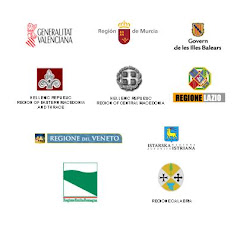The Valencian Region works together with regions from France and Greece to promote citizen's partiticipation for European issues
A new e-Participation project called U@MARENOSTRUM has been started this year. The project is co-funded by the European Commission within the e-Participation Call for Proposals 2008 and aims to involve citizens and local actors (community groups, associations etc.) from the Mediterranean costal zones in decision-making processes with the help of ICT (Information and Communication Technologies) and GIS (Geographic Information System). These processes have to do with the adoption and implementation of water and marine environmental protection policies and legislations in the Mediterranean region in accordance with the European Union (EU) environmental legislation. The project will be developed between 1st of January 2009-31st of December 2009 by cooperation of the following entities: : GFI Benelux, Gov2u (Greece), The Region of Ionian Islands (Greece), Hellenic Centre for Marine Research– Greece, Foundation Comunidad Valenciana-Región Europea (Spain), The Community of French Riviera (France) and Directorate General for Modernization of Valencia (Spain).
The project will lead to the development of a user friendly portal that captures information on a geographical map. The citizens will be able to register and post their views about water issues by placing flags with written comments to appropriate locations on the maps that will exist on this portal. Additionally they will be able to participate in discussion forums on specific policy issues that will be proposed by the local or national authorities or by them. In order to contact and directly interact with the decision-makers, citizens will be able to use online petitions and letters to officials in which they can express their views, concerns and questions related to environmental issues. The platform will also feature a section that visualizes the different stages of the legislative process in a graphical matrix - from the introduction of a new topic, to the consultation process, the discussion and the passing of a draft bill in the local or regional Council or in the Parliament.
Trial applications during a period of 14 months will be conducted in 3 end-user locations around the Mediterranean region; namely the Region on Ionian Islands (Greece), the French Riviera (France) and the Region of Valencia (Spain). Three internet platforms will be hosted at the end of August 2009 in the participating regions and will be given a regional ‘look and feel’ (including language) to ensure users’ participation. The platforms will be specifically designed to serve the citizens from the participating regions, but citizens from other regions of these countries will be welcome to use the platforms, as well.
In order to identify the best ways to increase the participation of the citizens in this project, a study has already been developed in order to analyze the attitudes of the citizens from the participating countries regarding their participation in environmental decision-making. At the same time, during March, a survey has been conducted among more than 150 citizens and public officials from the participating countries, in order to accurately gather the users’ requirements and needs regarding the functionality of the U@Marenostrum platform, so as to ensure its sufficiency in its utility.
For further information about the U@Marenostrum project you are welcome to visit the project’s website: www.uatmarenostrum.eu







